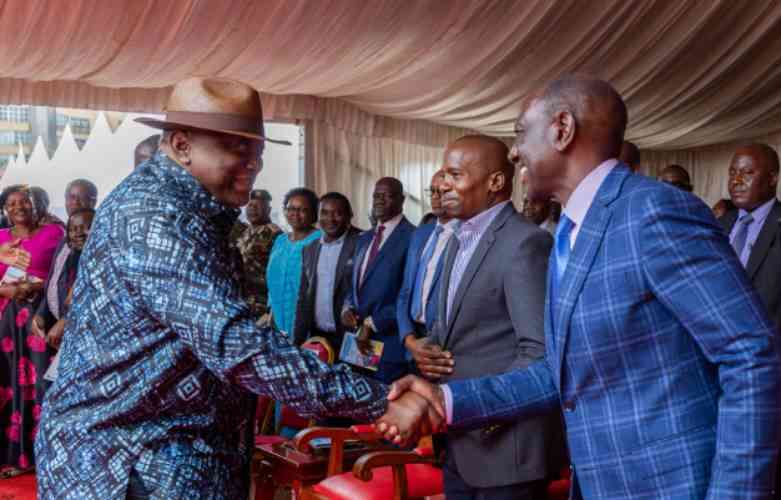President William Ruto and ousted Deputy President Rigathi Gachagua met for the first time since Gachagua's impeachment at the consecration of Bishop Peter Kimani in Embu on Saturday, November 16.
Gachagua was the first to arrive at the event, accompanied by several lawmakers allied to him.
He took his seat among the congregants, with Ruto arriving shortly after, in the company of Deputy President Kithure Kindiki.
The President and his deputy sat in the VIP section, where they were joined by former President Uhuru Kenyatta, who was the last to arrive at the ceremony.
The event also saw other regional political leaders in attendance.
Gachagua was removed from office on October 17 after the Senate upheld his impeachment on charges including undermining judicial independence and making controversial remarks about the government. By David Njaaga, The Standard






